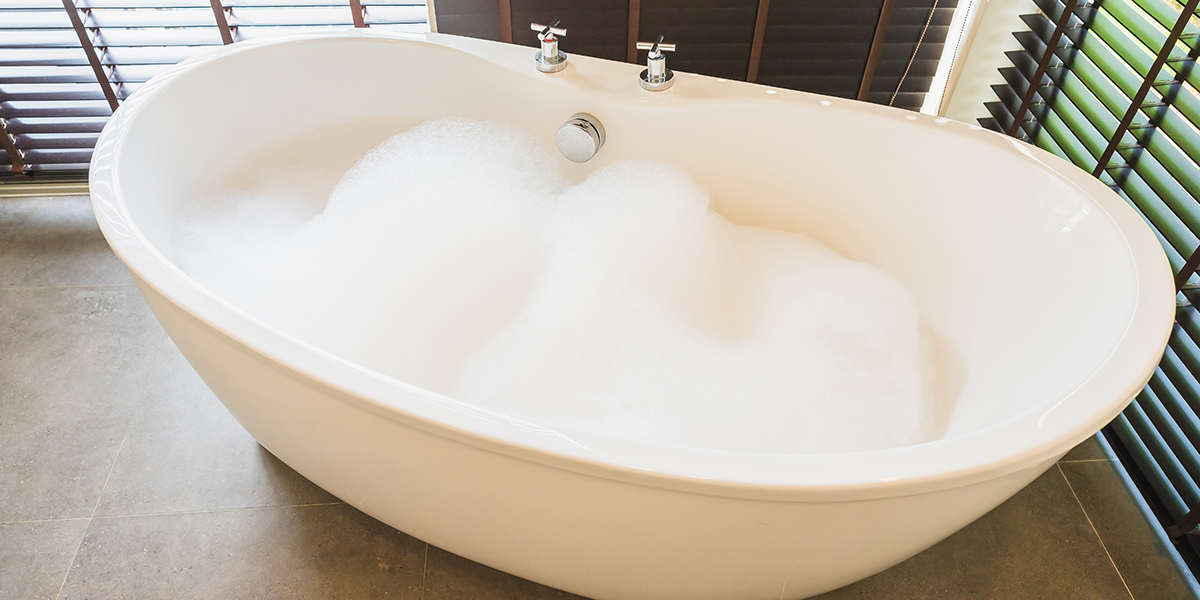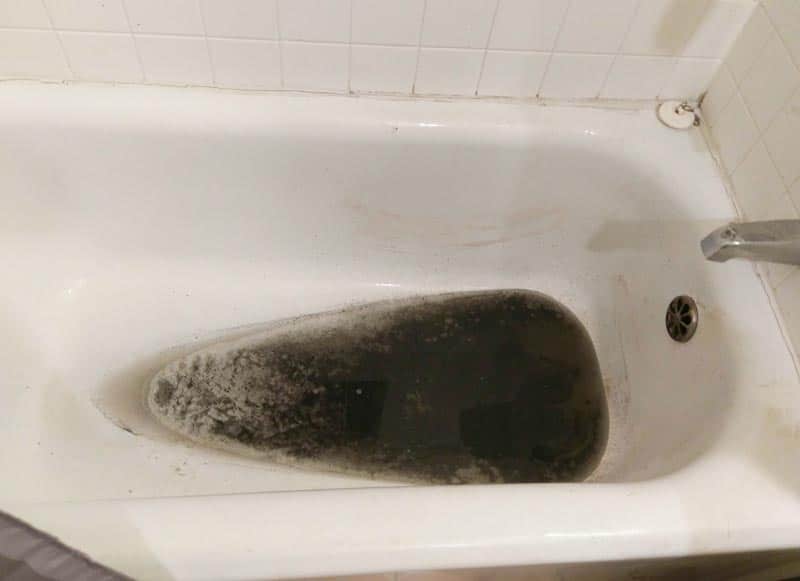Investigating the Causes of Effluent Backflow in the Bathtub
Investigating the Causes of Effluent Backflow in the Bathtub
Blog Article
We have noticed this great article involving Water Coming up Bathtub Drain listed below on the net and thought it made good sense to discuss it with you on my blog.

Sewage backup in the bath tub can be an upsetting and unsanitary problem for any homeowner. Not only is it bothersome, but it also postures serious health dangers and suggests underlying issues with the plumbing system. Comprehending why sewer is turning up via the bath tub is crucial for taking suitable activity to attend to the issue successfully.
Intro to the Problem
Typical Reasons for Sewer Back-up
Obstructions in the Sewer Line
One of the most typical root causes of sewer back-up is a clog in the sewer line. This can occur as a result of the build-up of debris, oil, or international items in the pipelines, protecting against proper circulation and causing sewage to back up into your bathtub.
Tree Origin Breach
Tree origins looking for moisture and nutrients can penetrate sewage system lines via small fractures or joints. In time, these roots can expand and expand, creating significant damage to the pipelines and bring about sewage back-up problems.
Comprehending the Issue
When sewer draws back up into the tub, it's a clear indicator of a problem with the drain system. The wastewater that should be moving far from your home is instead finding its back into your home, which can result in substantial damages and health hazards.
Prospective Reasons
A number of elements can contribute to sewage backup in the bathtub. From blockages in the drain line to concerns with the plumbing infrastructure, identifying the root cause is vital for discovering an option.
Aging Infrastructure
Older homes may have obsoleted plumbing systems that are more susceptible to deterioration, cracks, and deterioration. As pipelines age, they become more vulnerable to leakages and obstructions, enhancing the probability of sewage back-up occurrences.
Heavy Rainfall or Flooding
Throughout durations of heavy rainfall or flooding, the sewer system might become overloaded with excess water, triggering backups and overflows. This can result in sewer supporting into tubs and other fixtures inside the home.
Signs of Sewage Backup
Foul Odors
Unpleasant smells emanating from drains pipes or fixtures, particularly in the washroom, might show sewage backup problems. These smells are often solid and relentless, indicating a problem that requires prompt focus.
Slow Draining Fixtures
Bathtubs, sinks, and bathrooms that drain slowly or otherwise in any way could be experiencing sewer back-up. If numerous components are influenced at the same time, it's likely that the issue originates from a common point, such as the major drain line.
Gurgling Noises
Strange gurgling or bubbling sounds coming from drains when water is running in other places in your home are indicative of air caught in the plumbing system. This air accumulation can arise from sewage backup and should be investigated promptly.
Health Threats Related To Sewer Backup
Contamination of Water System
Sewage back-up can infect the water system in your home, posturing a severe health danger to you and your family members. Direct exposure to contaminated water can cause gastrointestinal problems, skin infections, and other illnesses.
Mold and mildew Growth
Wetness from sewer back-up can produce excellent conditions for mold growth in your home. Mold spores can intensify respiratory troubles and create allergies in sensitive individuals, making punctual clean-up necessary.
Spread of Illness
Sewer includes hazardous microorganisms, infections, and parasites that can cause a series of illness, including hepatitis, cholera, and gastroenteritis. Coming into contact with sewage or infected surface areas places you in danger of infection.
Tidying up After Sewage Back-up
Sanitation Procedures
Completely decontaminate and sterilize influenced locations after sewage backup to eliminate damaging germs and avoid mold and mildew growth. Use ideal cleaning products and protective equipment to ensure safe and effective cleaning.
Remediation of Influenced Areas
Repair any type of damage to floor covering, walls, or fixtures caused by sewer backup. Depending upon the extent of the damage, you might need to replace carpets, drywall, or other materials to recover your home to its pre-loss problem.
Immediate Actions to Take
Turning Off Water System
In the event of sewage back-up, it's essential to turn off the water to avoid additional contamination and damage. Locate the primary water shutoff valve in your home and shut it off until the concern can be settled.
Getting In Touch With a Specialist Plumber
Managing sewage back-up is not a DIY task. Call a qualified plumber with experience in managing sewage-related problems to evaluate the circumstance and execute required repair services or cleanings.
Avoiding Contact with Contaminated Water
Until the sewage backup is resolved, stay clear of contact with infected water to stop the spread of germs and virus. Use safety equipment if you should be in the damaged location and wash your hands extensively afterward.
Preventive Measures
Regular Upkeep of Sewage System Lines
Schedule regular evaluations and maintenance of your sewage system lines to identify and address potential concerns before they intensify into significant problems. This can consist of cleaning out particles, examining for tree root invasion, and fixing any type of damaged pipes.
Mounting Backwater Valves
Consider setting up bayou valves in your plumbing system to prevent sewer from flowing back right into your home during durations of heavy rainfall or flooding. These valves instantly close when water starts backing up, safeguarding your property from contamination.
Proper Disposal of Family Waste
Avoid flushing anything other than bathroom tissue and human waste down the toilet to avoid blockages and clogs in the drain line. Dispose of grease, oil, and other family chemicals properly to lessen the danger of plumbing issues.
What To Do If Sewage Starts Coming Up Through Your Bathtub
Sewage coming up through your bathtub is more than just gross. It poses a major health risk as sewage contains harmful bacteria and microorganisms that can be dangerous if exposed to them. While your tub or shower will certainly need a deep cleaning when this occurs, you’ll first need to get to the root of the issue.
If you notice sewage coming up through your bathtub, research Cherry Hill, NJ, licensed plumbers right away to get it fixed.
Why Sewage Is Coming Up Through Your Bathtub
The most common reason for sewage coming up through your bathtub is a clogged sewer line. All the sinks, toilets, and tubs connect to a single drain pipe that leads to the sewer line under your house. This drain line carries all wastewater and sewage away from your home to the city’s sewer system.
When the sewer line becomes clogged or blocked, wastewater has nowhere to go but back toward your house. This results in sewage coming up through your drains, often starting with your tub or shower.
The sewer line can become blocked by anything, but the most common culprits include:
Hair ? Cooking oils and grease ? Food waste ? Soap particles ? Children’s toys ? Jewelry ? Baby wipes or other non-flushable items ? Dirt ? Rocks ? Tree branches and debris ? Rodents How To Fix A Clogged Sewer Line
When you experience sewage coming up through your bathtub, it’s always best to contact a professional. Attempts to fix a clogged sewer line without experience often lead to more plumbing damage. However, you can try a few things that may loosen blockages in smaller connecting pipes.
Don’t Use A Plunger
Plungers only work to loosen obstructions near the head of the drain or toilet. It won’t be able to reach your sewer line or unclog the blockage.
Turn Off The Water
Turning the water off from the main valve will prevent excess water from flowing into already backed-up areas. This will also keep more sewage from coming up through your drains.
Check Your Vent Pipe
When vent pipes become clogged or blocked, it can lead to problems with the sewer line. By pulling any obstructions out of the pipe, your sewer line should be able to properly drain. The vent pipe can be located on your roof, usually directly over your bathroom.
Snake The Shower Drain And Toilet
Using a drain snake can help break up the object causing a blockage. By snaking both the shower drain and the toilet, you may be able to fix the issue. You’ll know you’re successful if the tub drains all sewage and wastewater.
Call A Professional
If these tactics don’t work, you will need to call a professional plumber. They will perform a camera sewer line inspection to find the source of the blockage and determine the best way to remove it. A professional will use a drain snake or conduct hydro jetting to unblock the sewer line and get things back in working condition.
If the obstacle blocking your drain line has caused any damage, you may also need your pipes repaired or even replaced.
Gurgling While Draining
Listen for gurgling sounds coming from the shower drain or sink, as this is an early warning sign of a clogged sewer line.
Frequent Clogs
If your toilet or other drains continuously become clogged, you need to call a professional to look at it. While you may be able to get the water or waste to drain again, it may only be a temporary fix.

Hopefully you liked our piece on . Thanks so much for finding the time to read our piece. Do you know about someone else who is looking into the topic? Please feel free to promote it. Thanks so much for taking the time to read it.
Customer Reviews
Report this page